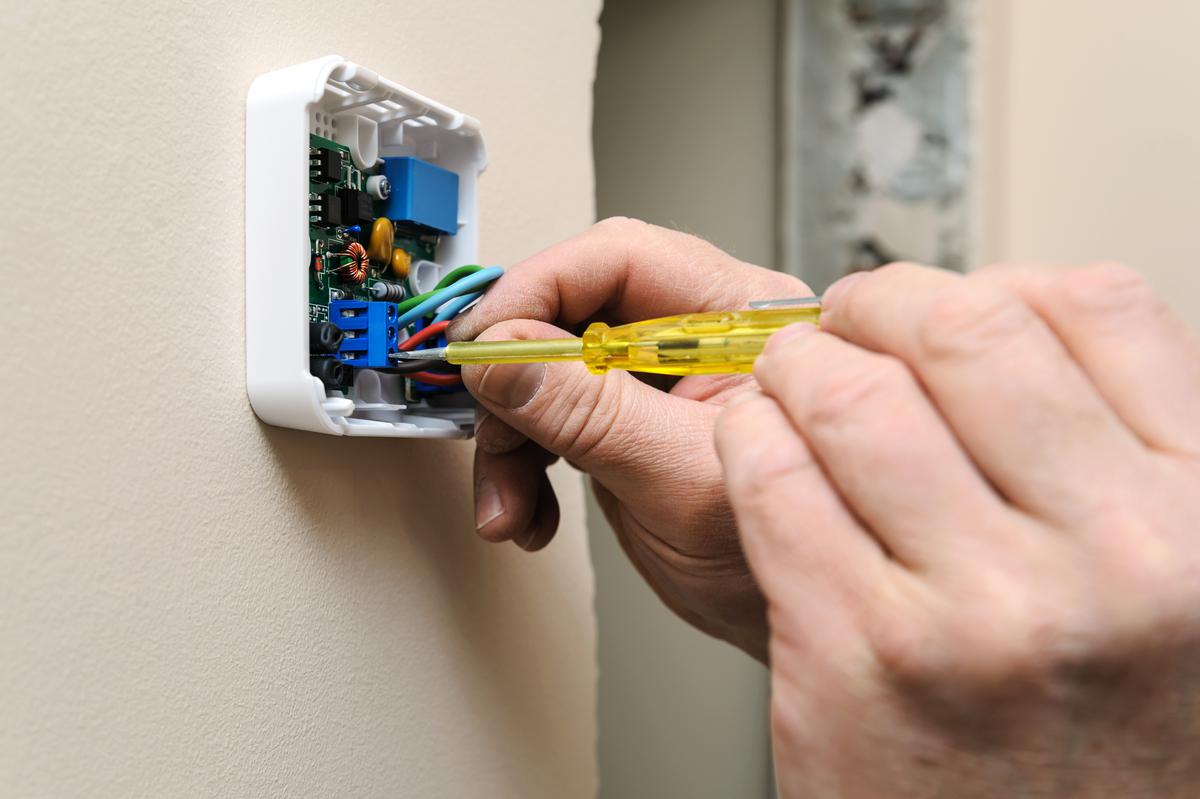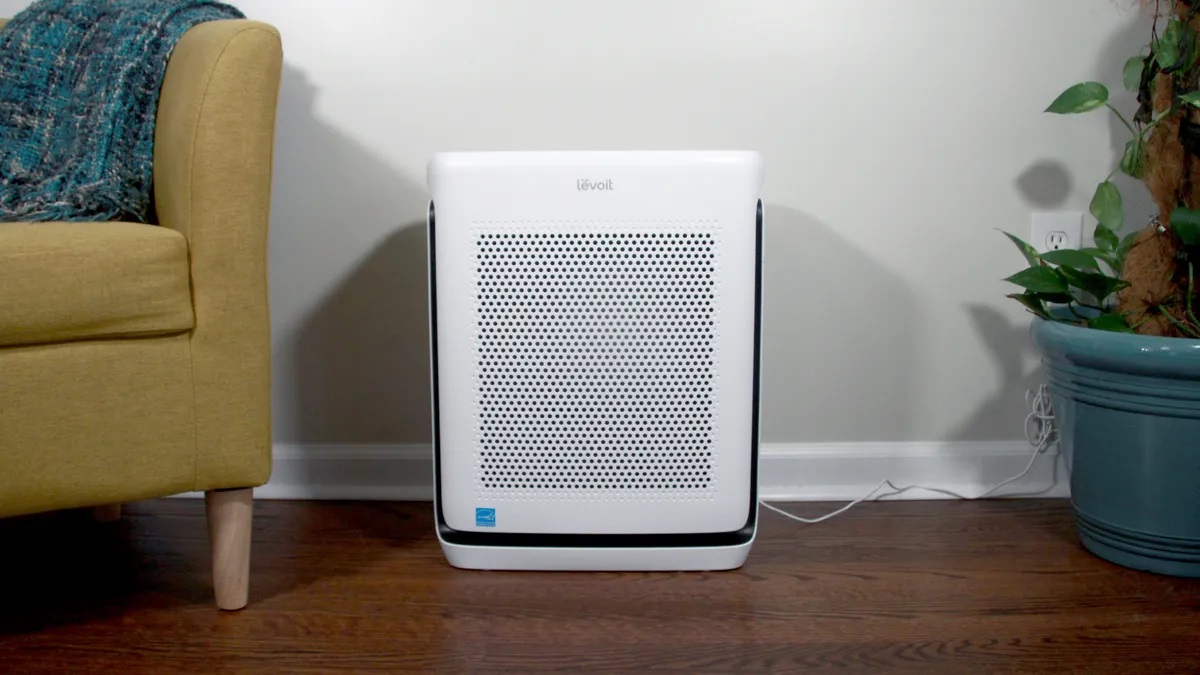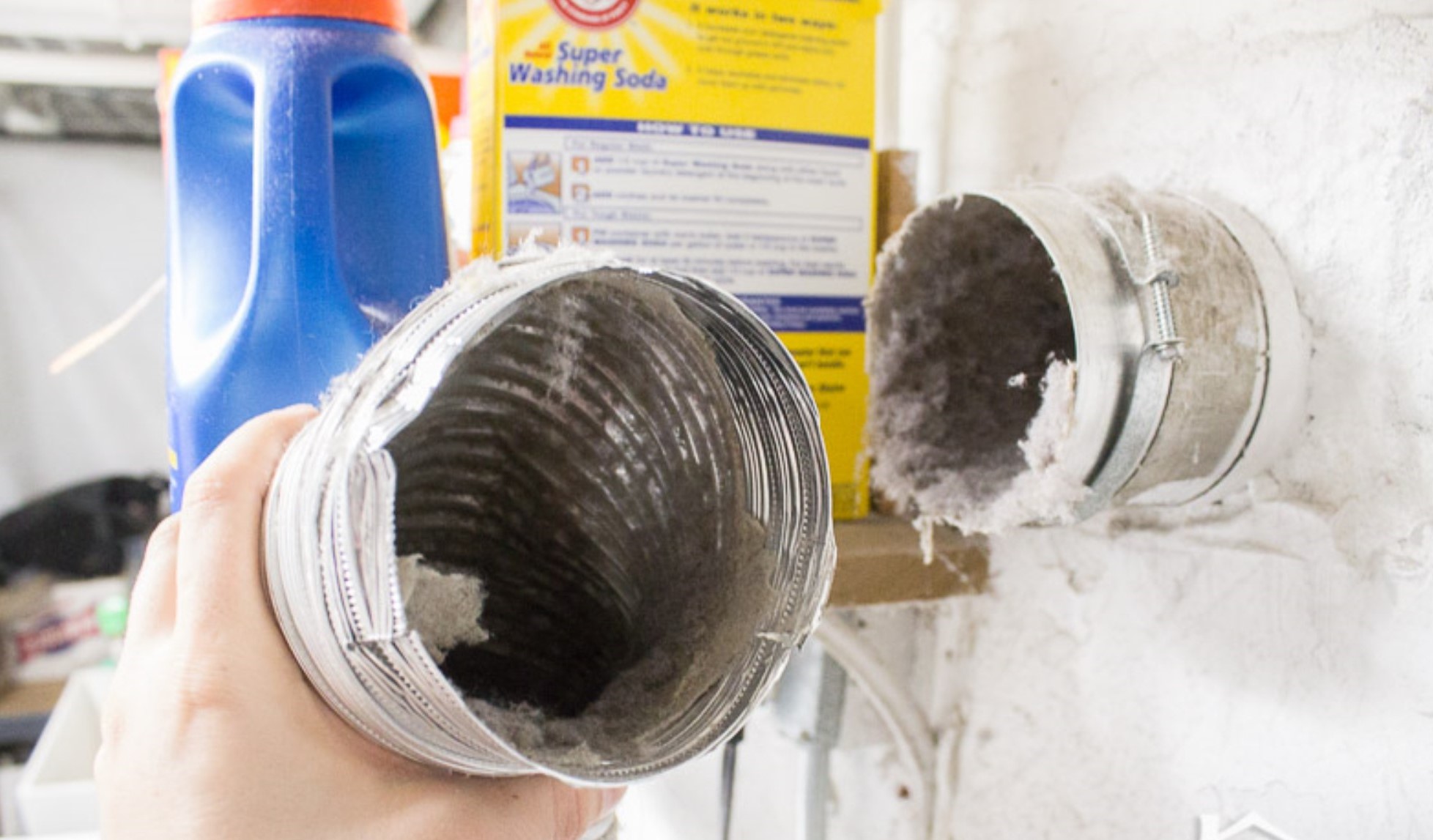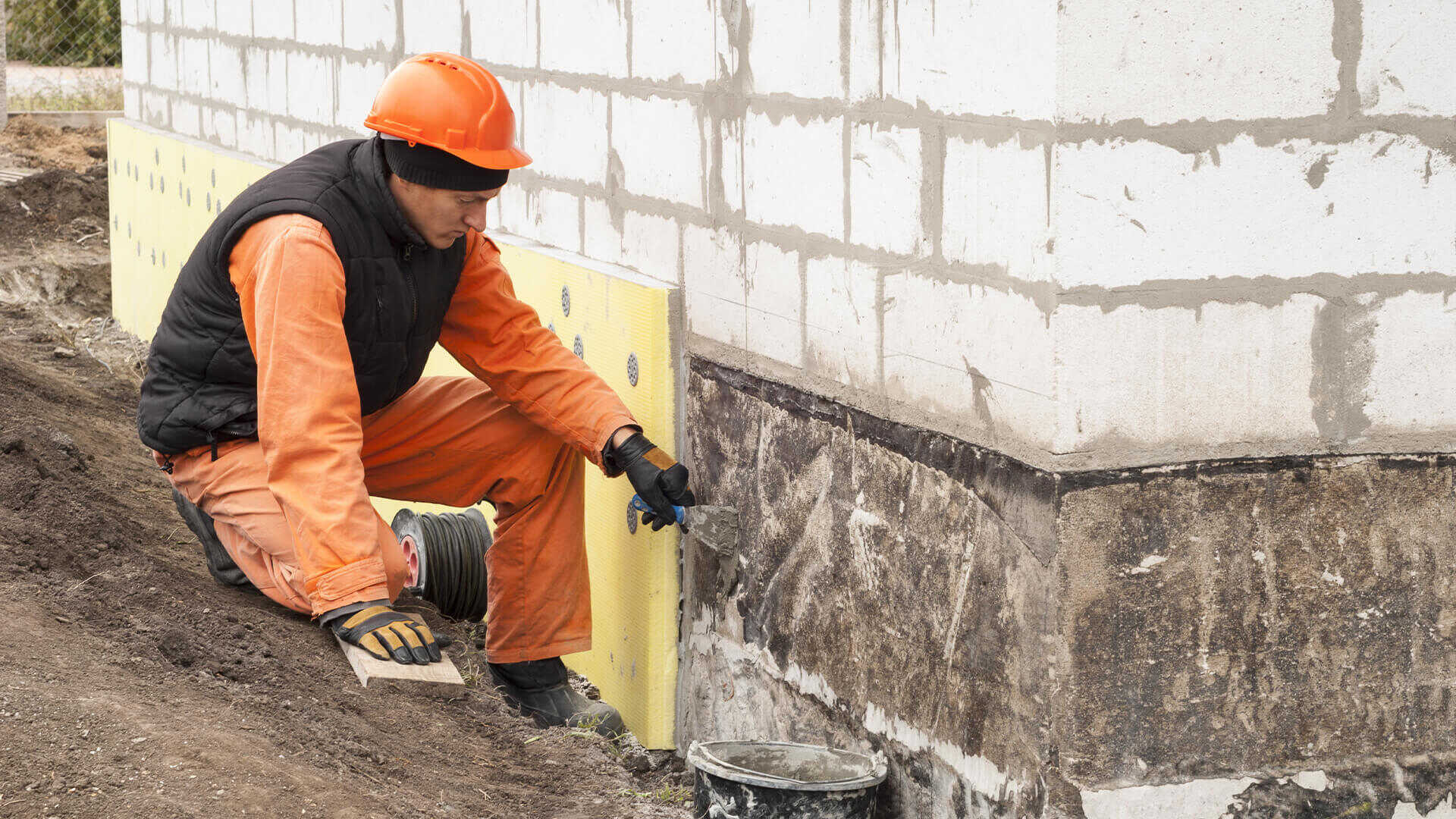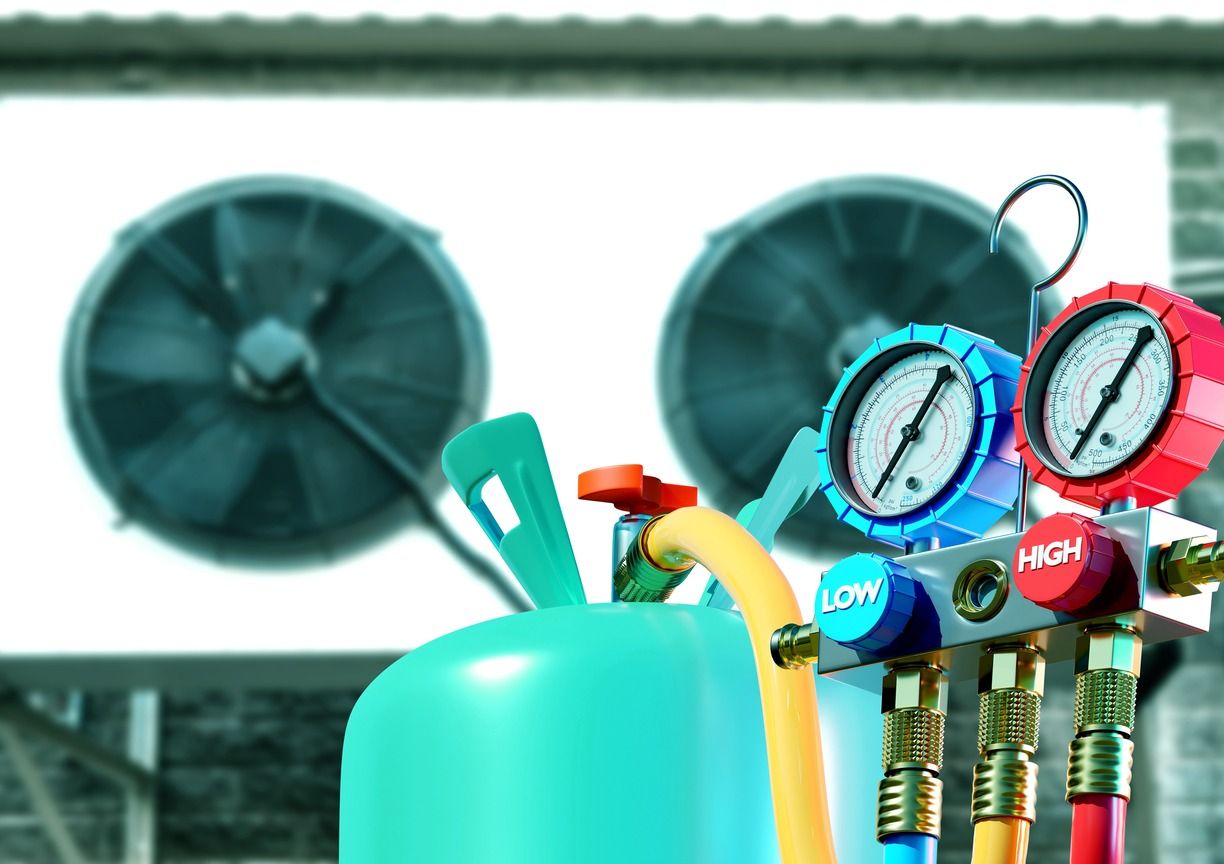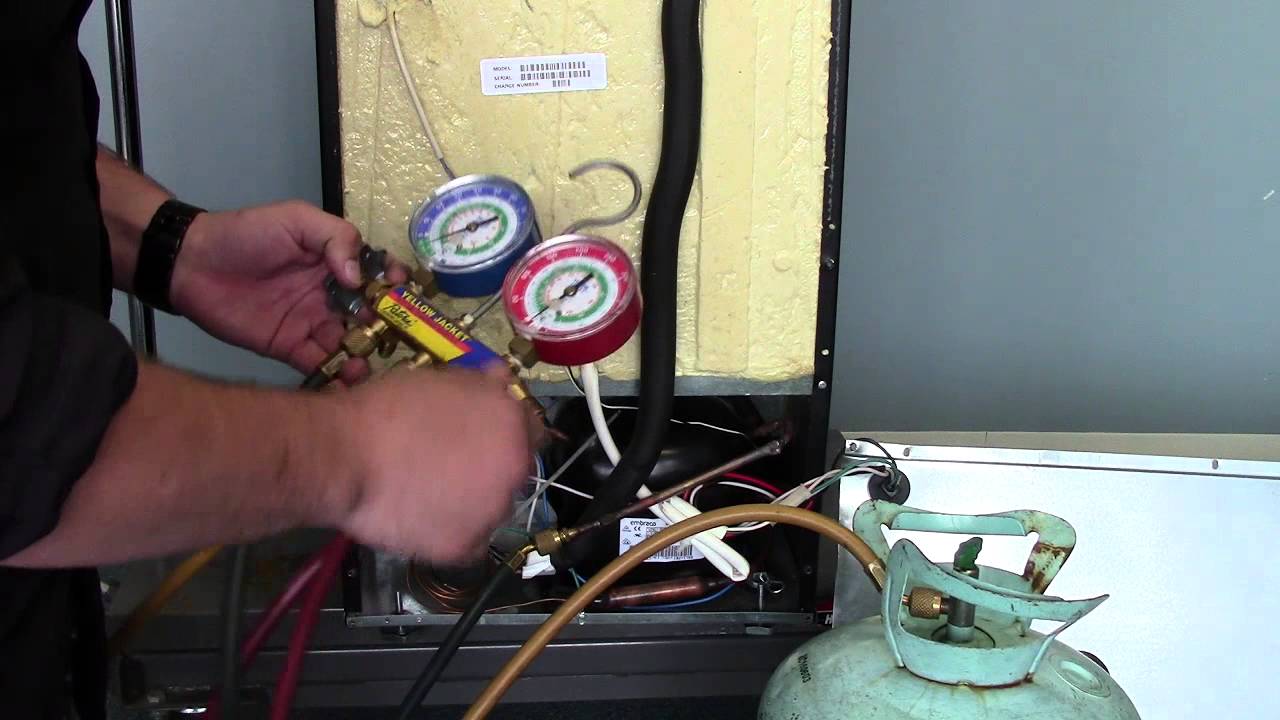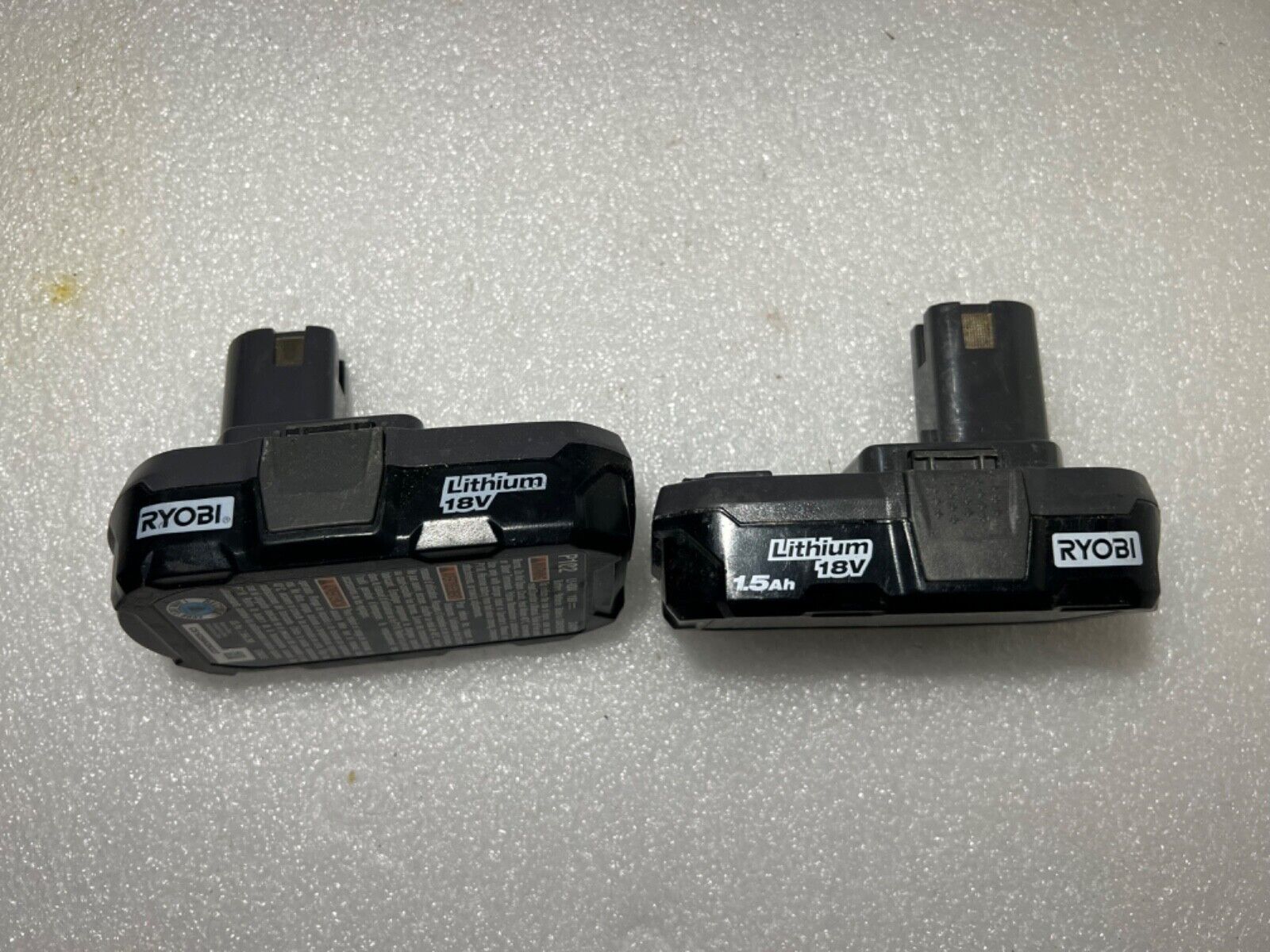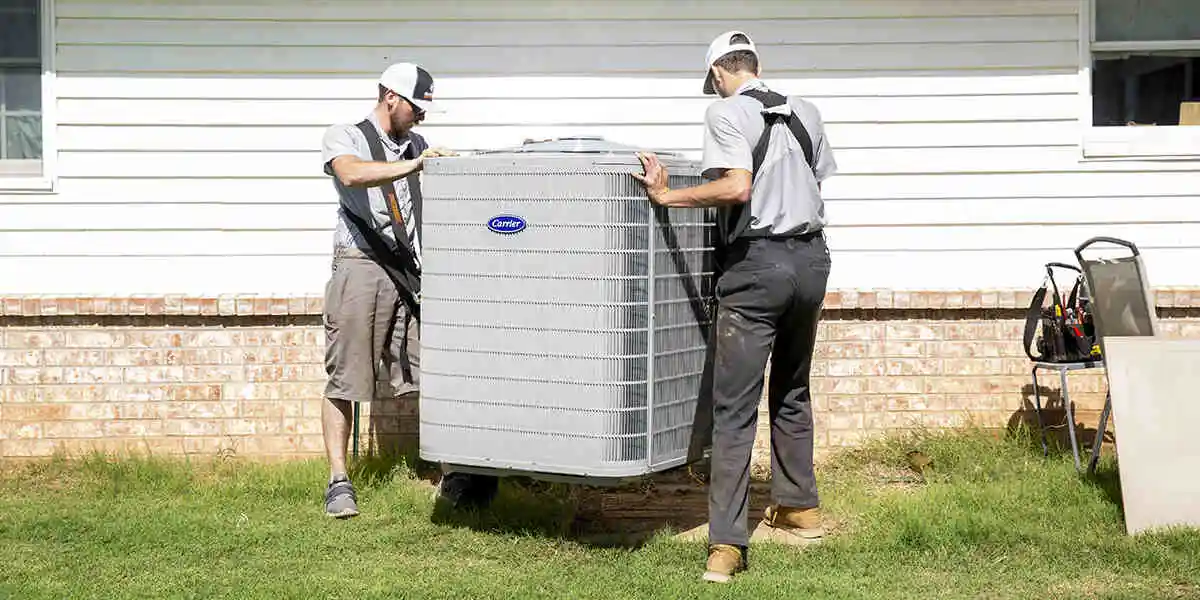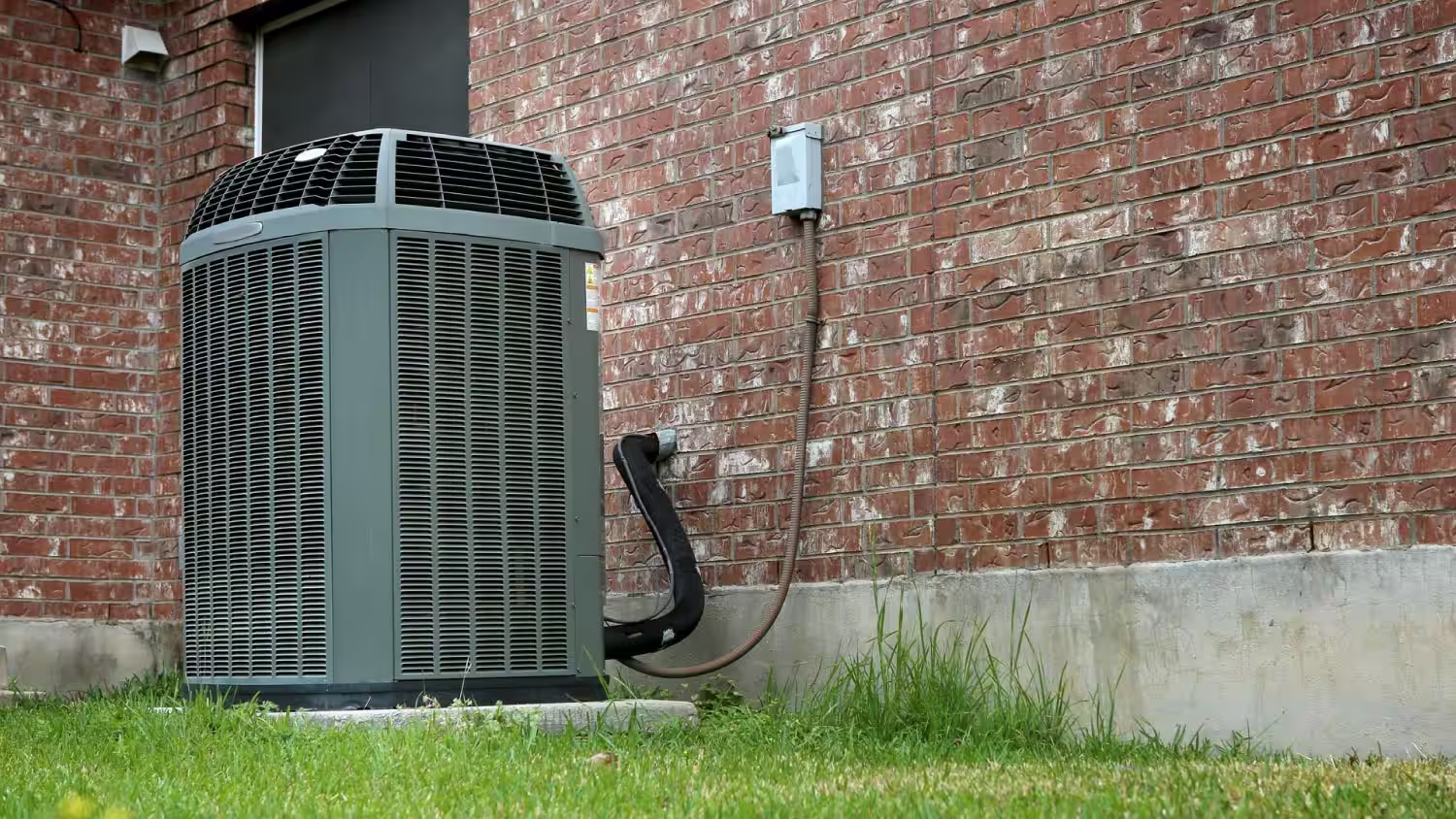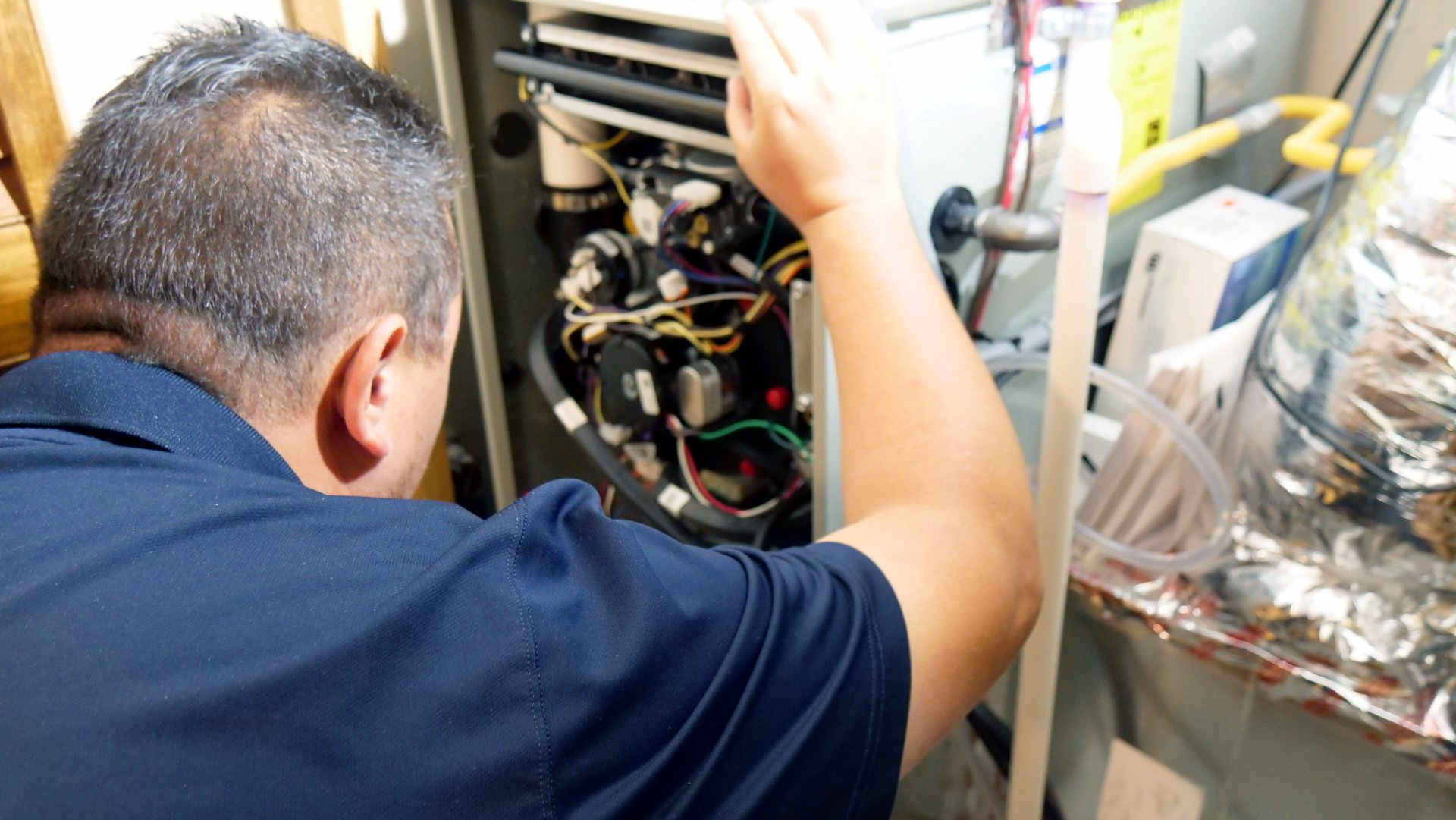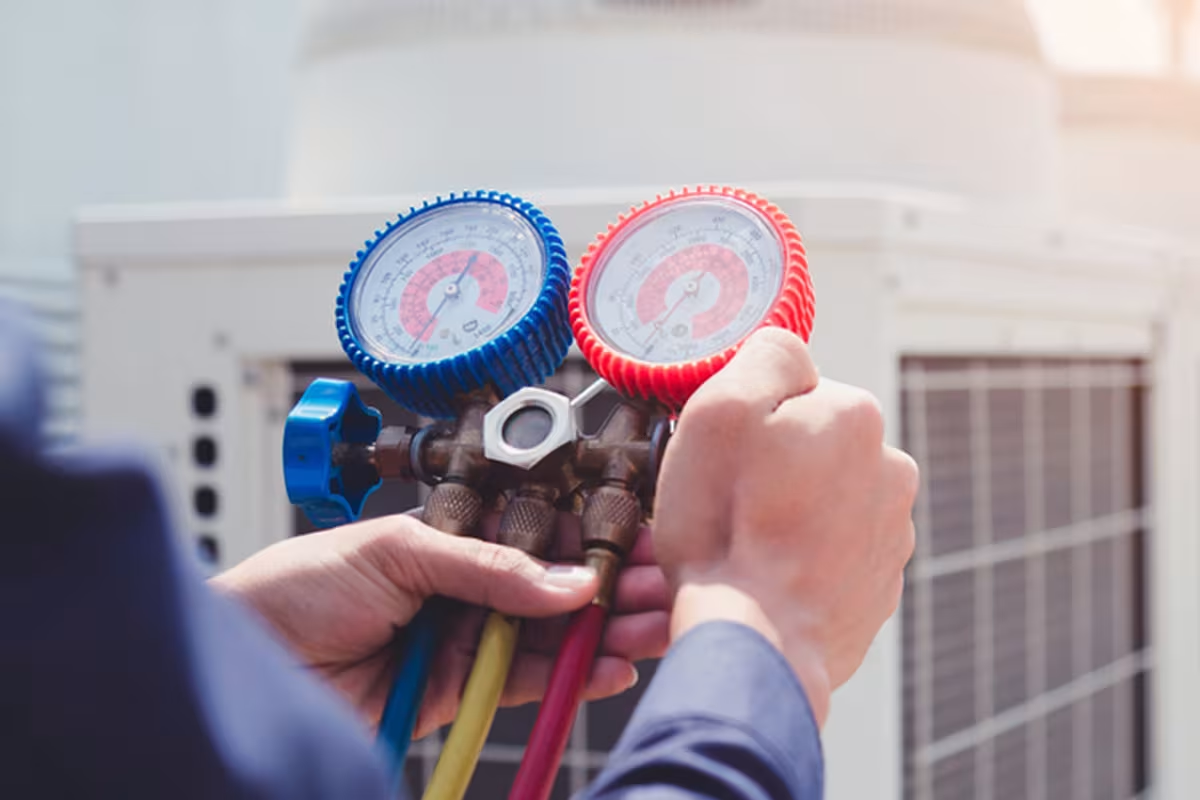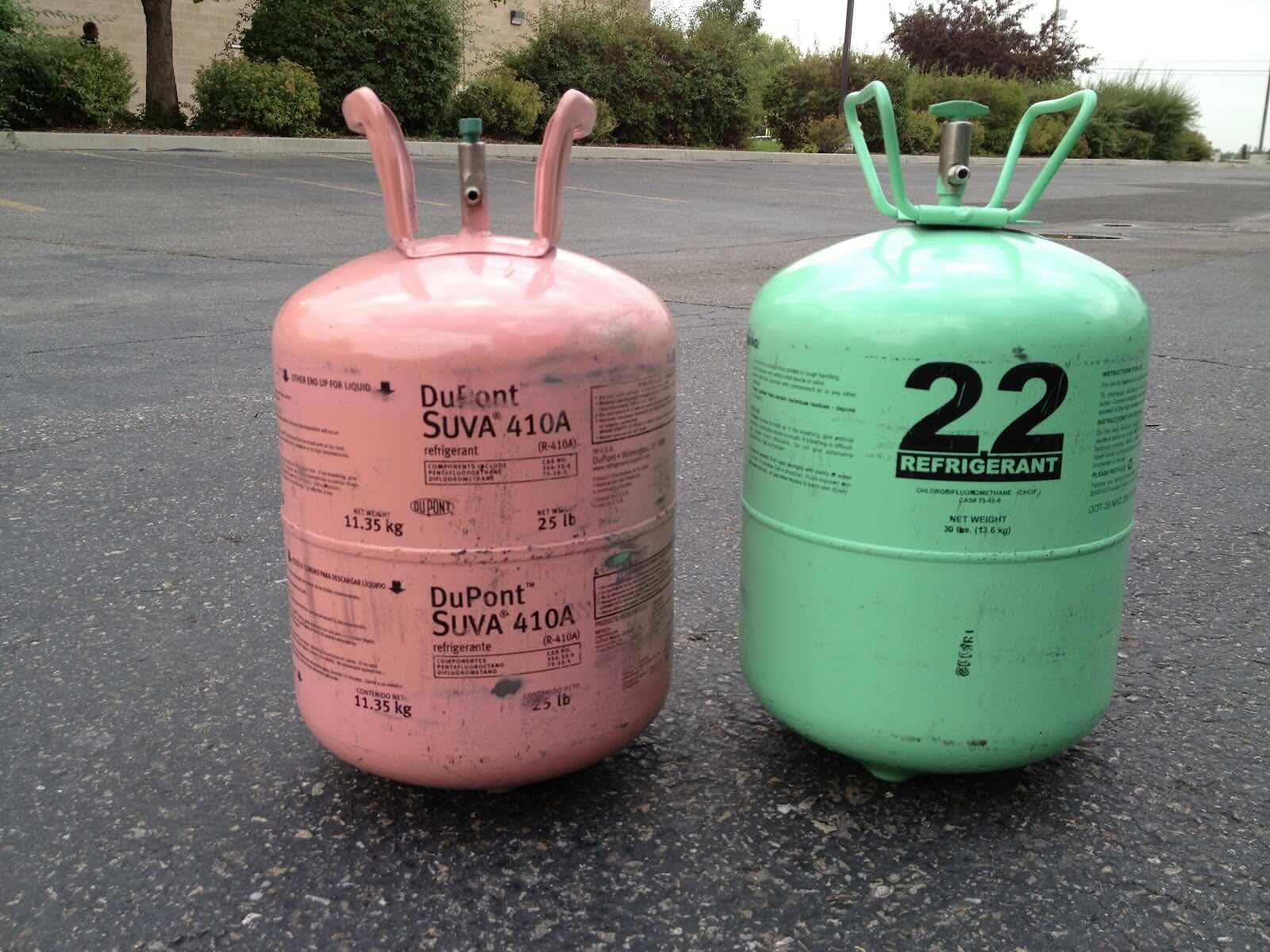Home>Home Maintenance>How Do I Know If My Air Conditioner Needs Freon
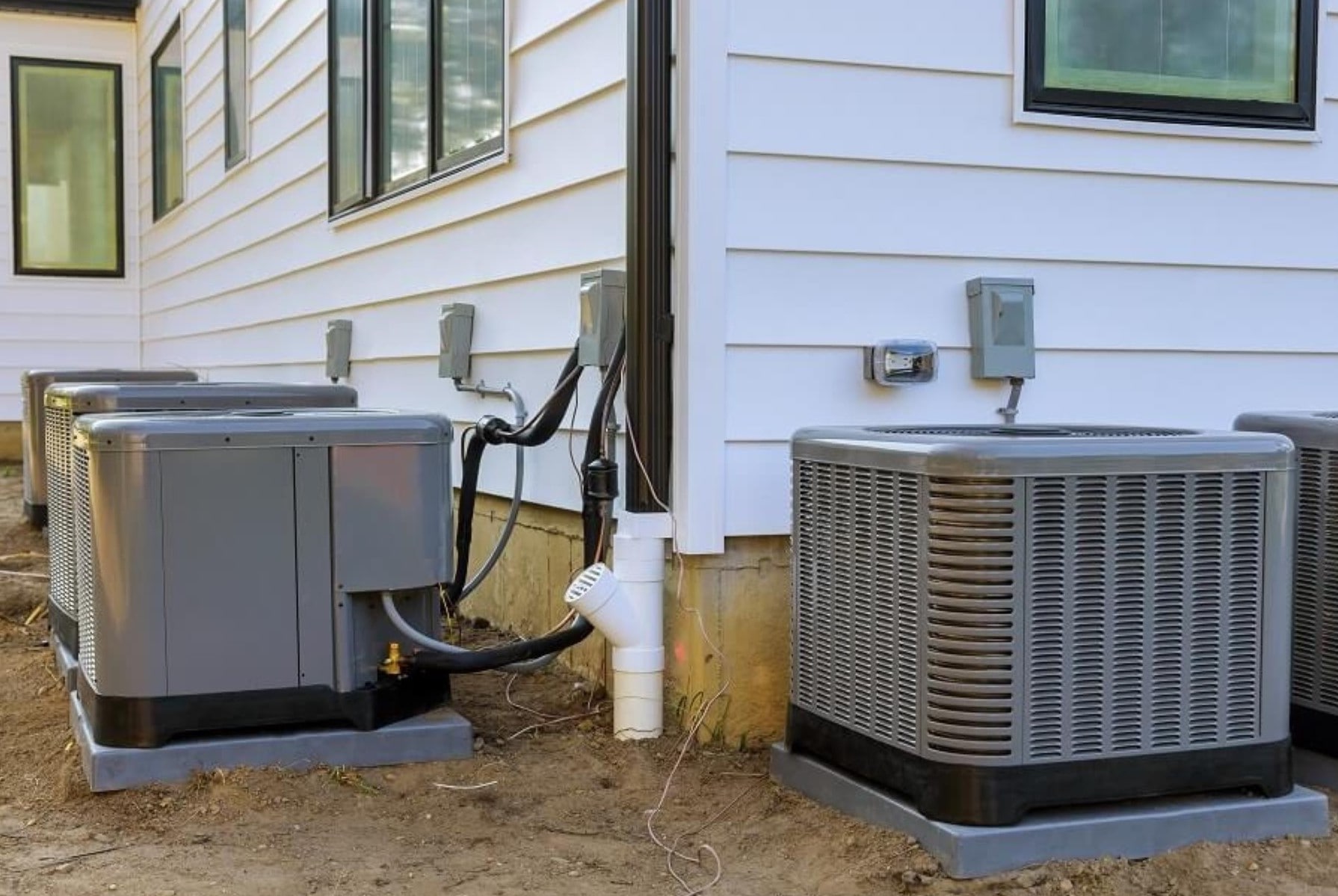

Home Maintenance
How Do I Know If My Air Conditioner Needs Freon
Modified: March 7, 2024
Learn how to determine if your air conditioner needs Freon and ensure your home is properly cooled. Find helpful home maintenance tips and advice.
(Many of the links in this article redirect to a specific reviewed product. Your purchase of these products through affiliate links helps to generate commission for Storables.com, at no extra cost. Learn more)
Introduction
Welcome to the world of home maintenance! Keeping your home in top condition can seem like a never-ending task, but it’s important to prioritize certain areas to ensure maximum comfort and functionality. One essential component of your home that requires regular attention is your air conditioning system.
Your air conditioner plays a crucial role in maintaining a comfortable indoor environment, especially during hot summer months. It works tirelessly to keep your home cool and provide relief from sweltering temperatures. However, over time, your air conditioner may experience issues that affect its performance and efficiency.
One common issue that homeowners often encounter is a refrigerant leak, which can lead to a decrease in the cooling capacity of your air conditioner. But how do you know if your air conditioner needs refrigerant, also commonly known as Freon? In this article, we’ll examine the signs that indicate your air conditioner may need a Freon recharge and the steps you can take to address the issue.
Before we dive into the signs, let’s quickly understand what exactly Freon is and its importance in your air conditioning system.
Key Takeaways:
- Keep an eye out for signs like reduced cooling, warm air, ice buildup, high energy bills, and strange noises. If you notice these, contact a professional technician to check your air conditioner’s Freon levels.
- Hiring a professional technician is crucial for accurately diagnosing and resolving air conditioner issues. They have the expertise, tools, and knowledge to handle Freon safely and ensure optimal system performance.
Read more: How Do I Know If My HVAC Needs Freon
What is Freon?
Freon is a widely used term for a group of chemical compounds known as chlorofluorocarbons (CFCs) or hydrochlorofluorocarbons (HCFCs). These compounds were commonly used as refrigerants in air conditioning systems and refrigeration equipment due to their excellent heat transfer properties.
One of the most well-known Freon compounds is Freon-22, also known by its chemical name as R-22. R-22 has been widely used in residential and commercial air conditioning systems for many years. However, due to its harmful impact on the environment and ozone depletion potential, its production and use have been phased out in many countries.
In recent times, the HVAC industry has transitioned to more environmentally friendly refrigerants, such as R-410A, which do not contain chlorine and have a lower impact on the ozone layer. It is important to note that the newer refrigerants have different properties and require specific equipment and expertise to handle them properly.
As a homeowner, it’s crucial to understand that the Freon or refrigerant in your air conditioner is not consumed or used up during normal operation. It is designed to circulate continuously within the system, absorbing heat from the indoor air and releasing it outside, thus providing cooling.
However, if your air conditioner develops a refrigerant leak, it can result in a gradual loss of Freon. This loss of refrigerant can significantly impact the cooling capacity and overall performance of your air conditioner. That’s why it’s important to be aware of the signs that indicate your air conditioner may need a Freon recharge.
Signs that your air conditioner may need Freon
When your air conditioner is low on Freon, it won’t be able to efficiently cool your home. Therefore, it’s important to be aware of the following signs that indicate your air conditioner may need a Freon recharge:
- Low cooling performance: If you notice that your air conditioner is not cooling your home as effectively as it used to, it could be a sign of low refrigerant levels. The reduced amount of Freon circulating in the system can lead to decreased cooling capacity.
- Warm air blowing from vents: Another indication of a Freon issue is if you feel warm air coming from your air conditioner’s vents instead of cold air. This can happen when there is insufficient refrigerant to absorb heat from the indoor air.
- Ice buildup on coils: If you notice ice forming on the evaporator coils of your air conditioner, it could be a clear sign of a refrigerant problem. Low levels of Freon can cause the coils to freeze up, hindering the cooling process and reducing efficiency.
- Increased energy consumption: When your air conditioner is low on Freon, it has to work harder and run for longer periods to achieve the desired cooling. This can result in higher energy consumption, leading to increased utility bills.
- Strange noises or odors: A refrigerant leak can cause unusual noises, such as hissing or bubbling sounds, coming from your air conditioner. Additionally, you may detect a distinct chemical odor, similar to coolant, emanating from the unit. These signs indicate a potential Freon leak.
It’s important to remember that these signs can also be caused by other factors, such as dirty air filters or a malfunctioning compressor. Therefore, it’s best to have a professional technician examine your air conditioner to accurately diagnose the issue.
If you notice any of these signs, it’s crucial to address the problem promptly. Ignoring a Freon leak can not only lead to reduced comfort but also cause further damage to your air conditioning system.
In the next section, we’ll discuss how to check if your air conditioner needs a Freon recharge.
Low cooling performance
One of the most noticeable signs that your air conditioner may need a Freon recharge is a decrease in cooling performance. If you find that your air conditioner is no longer able to cool your home as effectively as it used to, it could be an indication of low refrigerant levels.
Low levels of Freon in your air conditioning system can impair its ability to absorb heat from the indoor air and release it outside. This leads to inadequate cooling and discomfort inside your home, especially during hot summer months.
You may notice that certain rooms or areas of your home are not receiving sufficient airflow or are not getting as cool as the others. This temperature inconsistency is a direct result of the refrigerant shortage, as different parts of the system struggle to distribute cooled air properly.
If you discover that your air conditioner is not providing the desired cooling, there are a few steps you can take to confirm if low refrigerant levels are the issue:
- Check the temperature settings: Ensure that the thermostat is set to the appropriate cooling temperature. Sometimes, a simple adjustment of the thermostat can resolve the issue.
- Inspect the air filters: Clogged or dirty air filters can restrict airflow and impede cooling performance. Remove the filters and clean or replace them if necessary. This simple maintenance task can improve the efficiency of your air conditioner.
- Examine the outdoor unit: A dirty or blocked condenser unit can hinder the release of heat from the refrigerant. Clean any debris, leaves, or dirt accumulated around the outdoor unit to promote proper heat dissipation.
- Observe the indoor and outdoor coils: Inspect the evaporator coil (indoor) and condenser coil (outdoor) for dirt or grime buildup. Dirty coils can affect heat transfer and cooling efficiency. If you notice excessive dirt, consider scheduling a professional coil cleaning.
If you’ve checked these factors and your air conditioner is still not cooling effectively, it’s advisable to contact a professional HVAC technician for a thorough inspection. They can assess the refrigerant levels and determine if a Freon recharge is necessary.
Remember, handling refrigerant requires specialized knowledge and equipment, so it’s best to leave it to the professionals to ensure safety and optimal performance of your air conditioning system.
Warm air blowing from vents
If you feel warm air coming from your air conditioner’s vents instead of the cold air you’re used to, it could be a sign that your system needs a Freon recharge. The lack of cold air indicates that the refrigerant levels in your air conditioner are insufficient to properly absorb heat from the indoor air.
Several factors can contribute to warm air blowing from your vents, including:
- Refrigerant leak: Over time, wear and tear or other issues can cause a refrigerant leak in your air conditioning system. When the refrigerant levels drop, the system is unable to cool the air effectively, resulting in warm or room temperature air being blown into your home.
- Ice formation on evaporator coils: Ironically, ice formation on your air conditioner’s evaporator coils can also lead to warm air blowing from vents. When there’s a refrigerant leak or inadequate refrigerant levels, the evaporator coils may become too cold and freeze, preventing proper heat exchange and resulting in warm air flow.
- Clogged air filters or blocked airflow: A dirty air filter or blocked ducts can restrict the flow of air through your system. This can cause reduced cooling performance and lead to warm air being discharged from the vents.
- Faulty compressor: The compressor is responsible for compressing the refrigerant and facilitating heat transfer. A malfunctioning compressor can lead to poor cooling performance and warm air blowing from the vents.
If you notice warm air coming from your vents, there are a few steps you can take to troubleshoot the issue:
- Check the thermostat settings: Ensure that the thermostat is set to cool mode and at the desired temperature. It’s possible that the settings were accidentally changed.
- Inspect the air filters: Dirty or clogged air filters can obstruct airflow and reduce cooling efficiency. Clean or replace the filters if necessary to improve air circulation.
- Examine the outdoor unit: Clear any debris or obstructions around the outdoor unit to allow for proper airflow and heat dissipation.
If these steps don’t resolve the issue, it’s advisable to seek professional help. A qualified HVAC technician can inspect your air conditioner, identify the root cause of the warm air blowing, and determine if a Freon recharge or other repairs are needed.
Remember, handling refrigerant requires expertise and specialized equipment, so leave it to the professionals to ensure safe and effective resolution of the issue.
Read more: How Do I Know If My AC Needs Freon
Ice buildup on coils
Finding ice buildup on the coils of your air conditioner is a clear indicator that something is amiss. While it may seem counterintuitive, ice formation on the coils can actually be a sign that your air conditioner needs a Freon recharge.
When your air conditioning system is low on refrigerant, it can cause the evaporator coils to become excessively cold. This extreme coldness can lead to condensation on the coils, which then freezes into ice. As the ice continues to accumulate, it restricts airflow and hinders the proper heat exchange process.
Several factors can contribute to ice buildup on the coils:
- Refrigerant leak: A refrigerant leak is one of the most common causes of low Freon levels. When your air conditioner is low on refrigerant, it cannot effectively absorb heat from the indoor air, leading to ice formation on the coils.
- Restricted airflow: Insufficient airflow can also contribute to ice buildup. Dirty air filters, blocked ducts, or obstructions around the vents can restrict the flow of warm air over the coils, causing them to become excessively cold and freeze.
- Faulty components: Issues with components like the blower motor or the evaporator fan can disrupt the airflow and contribute to ice formation.
If you notice ice buildup on the coils of your air conditioner, it’s important to take action promptly to prevent further damage. Here’s what you can do:
- Turn off the air conditioner: Switch off your air conditioner to allow the ice to melt. Leaving the system running with ice on the coils may cause damage to the compressor or other components.
- Check the air filters: Inspect and clean or replace the air filters if they are dirty or clogged. Clogged filters can impede airflow and contribute to ice formation.
- Clear any obstructions: Make sure there are no blockages around the vents or registers that may be restricting airflow.
- Allow the coils to thaw: Once the ice has melted, let the coils dry completely before turning the air conditioner back on.
However, it’s important to note that simply thawing the coils may not solve the underlying issue. Ice buildup is often a symptom of a larger problem, such as a refrigerant leak or restricted airflow. To diagnose and fix the root cause, it’s best to contact a professional HVAC technician. They can inspect your air conditioner, identify the cause of the ice formation, and perform any necessary repairs or Freon recharge.
Remember, handling refrigerant requires specialized knowledge and equipment, so it’s important to leave it to the professionals to ensure the safety and optimal performance of your air conditioning system.
If your air conditioner is blowing warm air, not cooling as well as it used to, or making strange noises, it may need more Freon. Have a professional check it out to be sure.
Increased energy consumption
If you’ve noticed a sudden spike in your energy bills, it could be a sign that your air conditioner is consuming more energy than usual. Increased energy consumption is often indicative of an underlying issue, and one possible cause is low Freon levels in your air conditioning system.
When an air conditioner is low on refrigerant, it has to work harder and run for longer periods to achieve the desired cooling. The lack of sufficient Freon reduces the system’s efficiency, leading to increased energy consumption.
Here are a few reasons why low refrigerant levels can result in higher energy usage:
- Inefficient cooling: Insufficient Freon means the air conditioner is unable to cool the air as effectively as with optimal refrigerant levels. As a result, the system has to work harder to maintain the desired temperature, consuming more energy in the process.
- Compensating for inefficiencies: A low refrigerant charge can lead to reduced heat exchange in the system, forcing the air conditioner to compensate by running longer cycles to achieve the desired cooling. This prolonged operation consumes more energy, putting a strain on your utility bill.
- Increased strain on the compressor: The compressor is a critical component of your air conditioning system. When there is a refrigerant shortage, the compressor may have to work harder to maintain the desired cooling levels, resulting in increased energy usage.
If you suspect that your air conditioner’s increased energy consumption is due to low Freon levels, it’s important to address the issue promptly. Here’s what you can do:
- Check for other energy-consuming factors: Before concluding that the high energy consumption is solely due to low refrigerant levels, consider other factors that could be contributing to increased energy usage. For example, inefficient insulation, duct leaks, or dirty air filters can also lead to higher energy bills.
- Inspect the air conditioner’s performance: Pay attention to any other signs of low refrigerant levels, such as reduced cooling performance, warm air blowing from vents, or ice buildup on the coils.
- Contact a professional technician: If you suspect that low refrigerant levels are causing the increased energy consumption, it’s best to consult with a professional HVAC technician. They can perform a thorough inspection of your air conditioner, check the refrigerant levels, and determine if a Freon recharge is necessary.
By addressing the low Freon levels in your air conditioning system, you can help restore its efficiency, improve cooling performance, and reduce your energy consumption, ultimately leading to lower energy bills.
Strange noises or odors
If you’ve noticed strange noises or odors coming from your air conditioning system, it may be an indication of a potential Freon issue. While not always directly related to low refrigerant levels, these signs can be red flags that something is amiss with your air conditioner.
Here are some of the noises and odors to be aware of:
- Hissing or bubbling sounds: If you hear hissing or bubbling sounds coming from your air conditioner, it could be a sign of a refrigerant leak. The noise is often caused by the refrigerant escaping from the system through a crack or hole.
- Chemical or coolant odor: Detecting a distinct chemical or coolant-like smell coming from your air conditioner can be an indication of a refrigerant leak. Freon has a distinctive odor, and if it is leaking, you may be able to detect it near the unit or through the vents.
- Squealing or grinding noises: While these noises can be caused by various issues, such as a malfunctioning motor or worn-out bearings, they can also be a result of refrigerant problems. It’s important to have a professional technician inspect your air conditioner to determine the exact cause.
- Rattling or banging sounds: Unusual rattling or banging noises could be linked to loose components within your air conditioning system. While not directly related to Freon levels, it’s best to have a technician examine your unit to rule out any refrigerant issues that may be contributing to the noise.
If you notice any of these noises or odors coming from your air conditioner, it’s important to take action. Here’s what you can do:
- Turn off the air conditioner: If you detect a refrigerant leak or unusual odors, it’s best to switch off your air conditioner to prevent any further damage or potential health risks.
- Contact a professional technician: Reach out to a qualified HVAC technician who can thoroughly inspect your air conditioning system. They will be able to diagnose the source of the noises or odors and determine if a Freon recharge or other repairs are necessary.
Handling refrigerant requires expertise and specialized equipment, so it’s crucial to leave any repairs or leak detection to trained professionals. They will be able to safely address the issue and ensure the optimal functioning of your air conditioner.
Ignoring strange noises or odors from your air conditioner can lead to further damage, reduced efficiency, and potential health risks. Prompt action will help prevent more significant problems in the long run.
How to check if your air conditioner needs Freon
While some signs like warm air blowing or ice buildup on coils may indicate that your air conditioner needs a Freon recharge, it’s always best to have a professional technician assess the situation. However, there are a few steps you can take to help determine if your air conditioner is low on Freon:
- Check for reduced cooling performance: Pay attention to any decrease in the cooling performance of your air conditioner. If you find that it’s not cooling your home as effectively as it used to, it could be a sign of low refrigerant levels.
- Feel the air blowing from the vents: Place your hand near the vents and assess the temperature of the air. If you notice that the air is not as cold as it should be or if it’s warm, it may indicate a refrigerant issue.
- Inspect for ice buildup: Take a look at the evaporator coils of your air conditioner. If you see ice accumulation on the coils, it may suggest low refrigerant levels. However, it’s important to note that ice buildup can have other causes as well, so it’s best to consult a professional for a thorough inspection.
- Monitor energy consumption: If you’ve noticed a sudden increase in your energy bills without any other explanation, it’s worth considering if low refrigerant levels are the cause. Increased energy consumption can be a sign that your air conditioner is working harder due to insufficient Freon levels.
- Listen for unusual noises: While strange noises don’t directly indicate low refrigerant levels, they can be a symptom of underlying issues. If you hear hissing sounds or other unusual noises coming from your air conditioner, it’s best to have a professional technician assess the situation.
- Smell for chemical odors: If you detect a distinct chemical or coolant-like odor near your air conditioner or through the vents, it could suggest a refrigerant leak. Freon has a characteristic smell, and a noticeable odor warrants immediate attention from a professional.
While these steps can provide some insight into the condition of your air conditioner, it’s important to remember that assessing refrigerant levels and handling Freon requires expertise and proper equipment. For an accurate diagnosis and appropriate solution, it’s recommended to contact a qualified HVAC technician.
A professional technician will have the knowledge and tools to conduct a thorough inspection, measure refrigerant levels, detect leaks if necessary, and determine if a Freon recharge or other repairs are required to optimize the performance of your air conditioning system.
Hire a professional technician
When it comes to addressing issues with your air conditioner, especially regarding refrigerant levels and Freon, it’s crucial to seek the expertise of a professional HVAC technician. While you can check for certain signs that indicate your air conditioner may need a Freon recharge, a professional technician will have the knowledge, experience, and specialized tools required to accurately diagnose and resolve the problem.
Here are some reasons why hiring a professional technician is essential:
- Expertise and knowledge: HVAC technicians undergo extensive training to become experts in air conditioning systems. They have a deep understanding of refrigerants, including Freon, and how they interact with the various components of your air conditioner. This expertise enables them to accurately diagnose refrigerant issues and provide appropriate solutions.
- Proper equipment: Handling refrigerant requires specialized equipment and tools to measure and recharge the correct amount. Professional technicians have access to this equipment and know how to use it safely and effectively. They will ensure that the refrigerant levels are accurately measured and adjusted, optimizing the performance of your air conditioner.
- Safe handling of refrigerant: Refrigerants, including Freon, can be hazardous to your health and the environment if handled improperly. Professional technicians are trained to handle refrigerants safely, following industry guidelines and local regulations. They will ensure that any leaks are detected and repaired correctly, preventing harm to the environment and maintaining the integrity of the system.
- Comprehensive inspection: A professional technician doesn’t just focus on checking refrigerant levels. They will perform a thorough inspection of your air conditioning system, examining components such as the compressor, evaporator coil, condenser, and ductwork. This inspection allows them to identify any other issues that may be contributing to the problem or affecting the efficiency of your air conditioner.
- Efficient and long-lasting solutions: By hiring a professional technician, you can be confident that the issue with your air conditioner will be resolved effectively. They will provide appropriate solutions, such as a Freon recharge if necessary, and ensure that your air conditioner is operating optimally. This improves energy efficiency, extends the lifespan of your system, and enhances your overall comfort.
When it comes to the maintenance and repair of your air conditioning system, it’s important to rely on the expertise of professionals. They have the necessary skills, knowledge, and equipment to address refrigerant issues and ensure the optimal performance of your air conditioner.
Remember, attempting to handle refrigerant or repair your air conditioner without the proper expertise can be dangerous and can potentially cause further damage. It’s always best to leave these tasks in the hands of qualified technicians who can provide reliable and safe solutions for your specific needs.
Conclusion
Maintaining a well-functioning air conditioner is essential for creating a comfortable indoor environment, especially during the sweltering summer months. Recognizing the signs that indicate your air conditioner may need a Freon recharge is key to ensuring its optimal performance and efficiency.
In this article, we explored the various signs that suggest your air conditioner may be low on Freon, including low cooling performance, warm air blowing from the vents, ice buildup on coils, increased energy consumption, and strange noises or odors. While these signs can provide initial indications, it’s important to engage a professional HVAC technician for an accurate diagnosis and solution.
Hiring a professional technician offers several benefits, such as their expertise, access to specialized tools and equipment, safe handling of refrigerant, and comprehensive system inspection. These professionals will accurately measure refrigerant levels, detect leaks if necessary, and determine the most appropriate course of action, whether it’s a Freon recharge or other repairs.
Remember, attempting to handle refrigerant or repair your air conditioner without the necessary expertise and equipment can lead to further complications and potential risks. It’s best to rely on professional technicians who have the knowledge and experience to address refrigerant issues effectively and ensure the optimal functioning of your air conditioning system.
By addressing Freon-related issues promptly and engaging the services of a professional technician, you can enjoy a properly functioning air conditioner, improved energy efficiency, reduced energy consumption, and a more comfortable indoor environment.
So, if you ever notice any signs indicating low refrigerant levels, don’t hesitate to seek professional help. Contact a trusted HVAC technician who can diagnose the issue and provide reliable solutions to keep your air conditioner running smoothly and efficiently for years to come.
Frequently Asked Questions about How Do I Know If My Air Conditioner Needs Freon
Was this page helpful?
At Storables.com, we guarantee accurate and reliable information. Our content, validated by Expert Board Contributors, is crafted following stringent Editorial Policies. We're committed to providing you with well-researched, expert-backed insights for all your informational needs.
